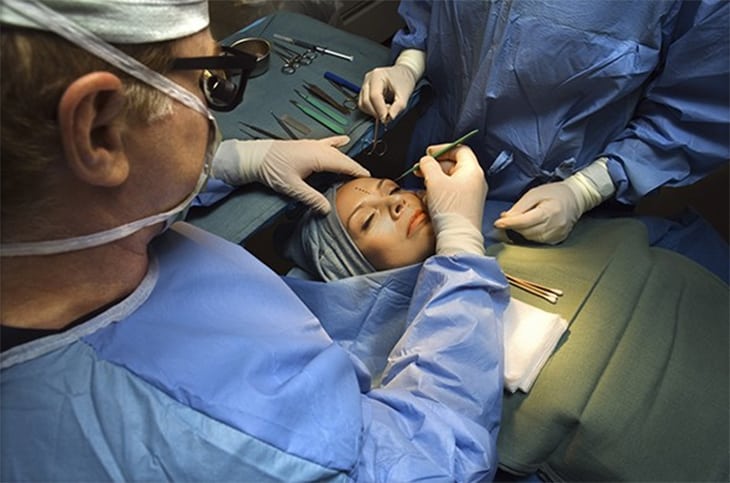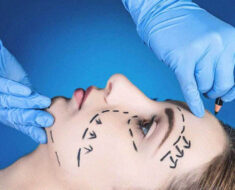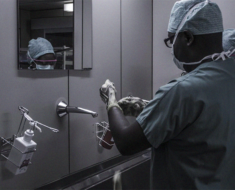
Source: https://www.beautymanagement.it
An in-depth overview of the differentiators between the surgical fields.
Medical terminology, for those of us who weren’t put through the arduous examinations, is sure to be a confusing, inexplicable topic at times. Understandably, when the terms surpass four or five syllables, it can confuse people. Cosmetic, plastic, and facial plastic surgery are often, mistakenly, paired as one entity. All procedures are intended to enhance a patient’s body, but the similarities end there. P. Daniel Ward MD, a facial plastic surgeon who has the honored distinction of being double-board certified, shares an in-depth overview of the surgical fields which will make them easier to distinguish from here on out.
The term plastic surgery is a broad term that includes both cosmetic procedures and functional/reconstructive procedures. Cosmetic procedures are those that are done for cosmetic reasons, whereas functional or reconstructive procedures are done to improve function or to reconstruct. Now that you have a general understanding of the two types of surgery, it is time to dive into a more in-depth breakdown of facial plastic surgery, plastic surgery, and cosmetic procedures.

Source: https://www.asaps.org
Cosmetic Procedures
The objective of cosmetic procedures lies in improving one’s appearance, with a focus on aesthetics, symmetry and proportion. All sectors of the head, neck, face, skin, and body can be assisted by this surgery. Common examples include rhinoplasty (nose job), facelift, neck lift, eyelid procedures (blepharoplasty or brow lift), breast augmentation, facial contouring, body shaping, facial revitalization and skin rejuvenation, are some of the options in this field.
P. Daniel Ward MD notes that the only surgeons who are board certified by the American Board of Medical Specialties to perform facial plastic surgery are facial plastic surgeons and general plastic surgeons. Facial plastic surgeons are usually trained, and board certified in otolaryngology—head and neck surgery, which includes five to six years working in the head and neck region since facial plastic surgery is part of its training. This training is further augmented by an additional fellowship training in facial plastic surgery and an additional board certification in facial plastic surgery.
General plastic surgeons obtain their training based in three years of general surgery (general surgeons perform procedures such as gall bladder removal, appendectomy, bowel procedures, etc) followed by three years of plastic surgery that covers the entire body. These surgeons are board certified to perform plastic surgery of the whole body.
In contrast to facial plastic surgeons and general plastic surgeons, there are surgeons who refer to themselves as cosmetic surgeons. These cosmetic surgeons typically are trained by first going to dental school followed by training to become oral and maxillofacial surgeons. They are board certified by the dental associations, but not by the American Board of Medical Specialties.

Source: https://hips.hearstapps.com
Plastic Surgeons
Plastic surgery is more complicated than cosmetic surgery as there is some grey area revolving around the field. Plastic surgeons are those that operate on areas other than the face that require either medical attention, or a voluntary procedure to increase appearance. This can entail such procedures are skin grafts, to tummy tucks, to breast augmentation or reduction.
P. Daniel Ward MD notes that plastic surgeons are highly trained and required to successfully complete one year of fellowship training that is certified by the American Academy of Cosmetic Surgery. Here, they practice every cosmetic and non-facial plastic surgery procedure, in addition to nonsurgical methods, and must fulfill a quota of at least 300 individual surgical operations. In its entirety, from college and medical school to certified fellowship, the process will stretch over a decade in duration. To keep your certification status as a plastic surgeon within the American Board of Cosmetic Surgery, you must pass a recertification exam after every ten-year spell.
While these doctors may fall into the cosmetic surgery field, they are undoubtably highly trained professionals who have achieved board certification. General plastic surgeons have legitimate claims as specialists, as they provide expert care for all aesthetic and necessary procedures for reconstructive surgery.

Source: https://i.dailymail.co.uk
Facial Plastic Surgeons
Facial plastic surgery is multifaceted and works to solve issues that necessitate fixing and at times will increase a patient’s physical appearance. P. Daniel Ward MD points out that these procedures are committed to reconstructing defects that stem from birth disorders, trauma, burns and disease, while the more aesthetic procedures being facelifts and rhinoplasty. A few forms of facial plastic surgery include burn repair surgery, congenital defect repair (cleft palate, extremity defect repair), and scar revision surgery.
Physicians can earn board certification in plastic surgery either through unified residency training that equates to six years – three years for general surgery and another three years for plastic surgery – or via a five-year residency program for general surgery in a separate institution. Picking the latter will still require you to finish the three-year plastic surgery residency program afterwards. To receive a seat for a certification exam of the American Board of Plastic Surgery, P. Daniel Ward says you must have 150 cosmetic surgery procedures under your belt. Should you pursue a career as a cosmetic surgeon, you will first have to conquer the training within a plastic surgery program, a steppingstone along the way.
P. Daniel Ward MD’s Key Takeaways
The distinction between cosmetic and plastic surgery lays within the procedure being conducted. As P. Daniel Ward has shared, cosmetic plastic surgery is used to improve appearance, whereas, functional or reconstructive plastic surgery is used to address a medical issue that requires correction. Cosmetic surgeons are not board certified by the American Board of Medical Specialties. P Daniel Ward MD recommends that you make sure your surgeon is board certified by the American Board of Medical Specialties and that you should also look for additional training and expertise. For a facial procedure, he recommends that you look for a double board-certified facial plastic surgeon who performs many of the procedures in which you are interested in pursuing. In addition, Dr. P Daniel Ward recommends taking time when consulting you’re your plastic surgeon to find the one that is best suited for your needs with their skill set and experience.




















